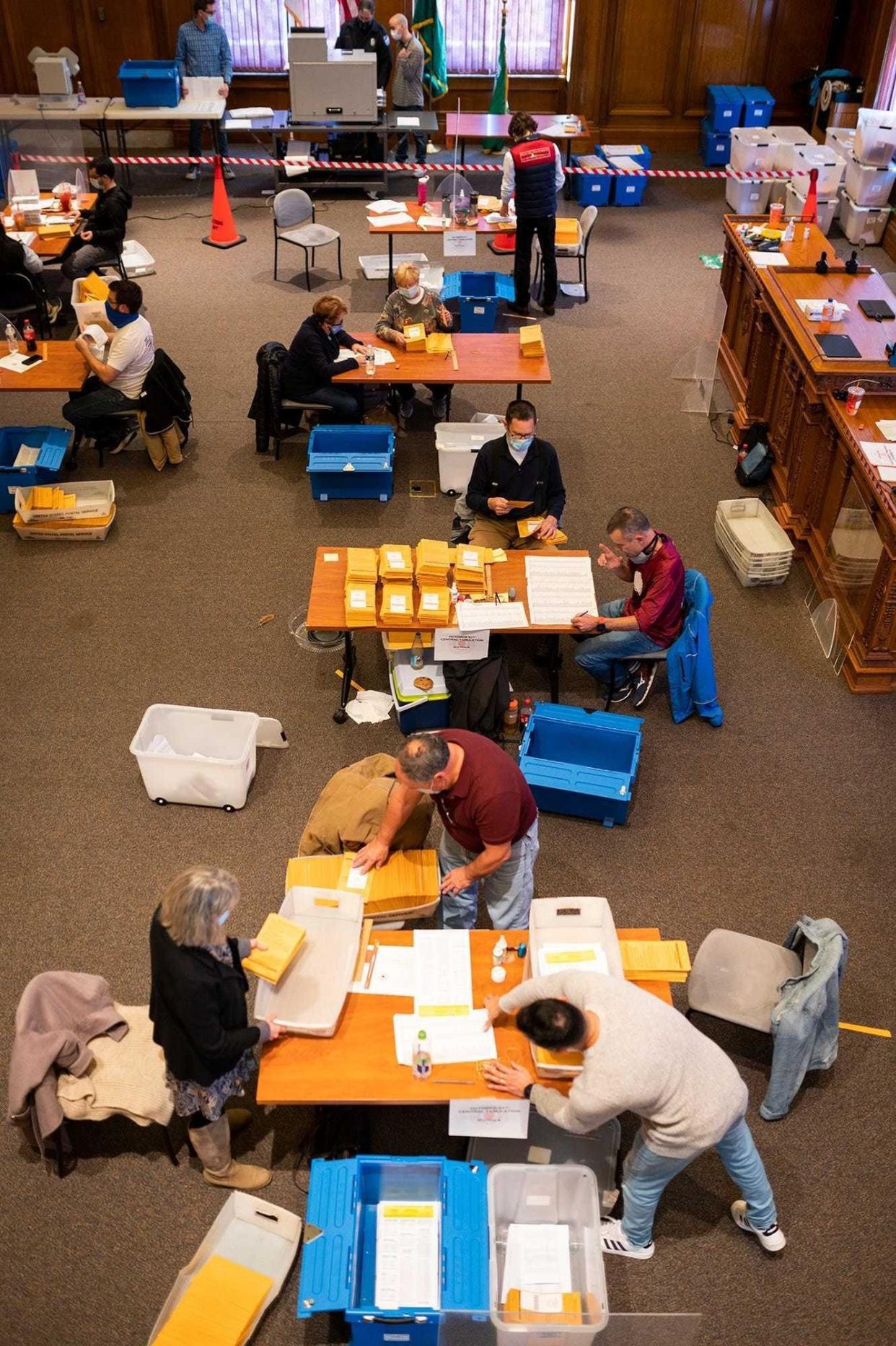Election Commission to hold 4 public hearings on new Worcester School Committee districts

WORCESTER — The Board of Election Commissioners Thursday started laying the groundwork for a public hearing process that will lead to the drawing of the first School Committee district maps.
There are still some things that need to fall into place, but the board Thursday scheduled four public hearings through the beginning of March on how six new School Committee districts will be drawn ahead of the 2023 municipal election.
The process is part of a consent decree the city entered into with a group of individuals and organizations who sued the city last year. The decree will settle the lawsuit, which alleged that the all at-large system of electing School Committee members was a violation of the Voting Rights Act, and diluted the vote of Black and Latino voters in the city.
Several components of the decree have already been put into motion; the City Council decided the new School Committee structure will consist of six district members, two at-large members, and the mayor. Two of those districts, according to the decree, with be minority-majority.
To amend the charter, the city had to file a home rule petition with the Legislature; that bill, City Solicitor Michael Traynor explained to the board Thursday, is working its way through the statehouse.
The decree gives the Election Commission until March 21 to approve the new School Committee district boundaries; Traynor told the board he will be discussing how elastic that date is with the plaintiffs in an upcoming call; he said depending on when a 90-day clock was set in motion relative to the filing of the home rule legislation, the timeline could shift.
The board Thursday voted to approve four upcoming dates for public hearings: Thursday, Feb. 17, Thursday, Feb. 24, Thursday, March 3, and Thursday, March 10. All the meetings will be held at 5:30 p.m.
Traynor told the board Thursday one outstanding decision that will need to be finalized before the districting process begins is the selection of an independent expert approved by both the city and the plaintiffs.
Traynor has said the hope is to keep on Nathaniel Persily, a Stanford professor and national election law expert who played a supporting role with the city when it was choosing what electoral model to choose for the School Committee. Persily did similar work in Lowell, and Traynor said he would be able to get up to speed quickly if the plaintiffs agree that he should oversee the process. He said that decision could be made ahead of the first hearing on Feb. 17.
Commissioner John Stewart asked what would happen if the board had a disagreement with the expert over part of the process; the solicitor clarified to the board that for this initial districting process, the independent expert will have the final say over how the maps look. He said that in particular, the drawing of the minority-majority maps will draw heavily on the expert's knowledge.
Commissioner Richard Duffy asked how it all came to this. Traynor explained that the lawsuit alleged that the all-plurality system the School Committee elections used did not give certain groups of Black and Latino voters an equal chance of electing members of their choice, thus diluting their votes. He said the City Council decided not to fight the lawsuit, but also did not admit to any Constitutional violations or violations of the Voting Rights Act.
Duffy said he understood that, but asked what would happen if Scottish or Jewish voters in the city wanted to do the same thing.
Traynor explained that the threshold to prove Voting Rights Act violations is high, and that plaintiffs have to show that geographically compact blocs of voters who have a like-minded desire to support certain candidates are not able to elect who they want in office.
Commissioner Winifred Octave told Duffy that in Worcester, the all at-large system resulted in most members being elected from the city's west side.
"It looks like what they want is a little fairness, especially with the minority-majority districts," Octave said.
Traynor and City Clerk Nikolin Vangjeli reminded the board Thursday that those discussions have already occurred, and the city has decided on the current course of action.
And Traynor, in a response to a question from resident David Coyne, explained that if the city fails to meet its obligations under the consent decree, the plaintiffs can take the city back to court and the federal judge overseeing the case could take control of the process.
"The city has agreed to do it," Coyne said. "If the city fails, we lose leverage to even be a participant. It's important for us to get this done."
Traynor said the city is far enough along that the chances of failure are unlikely, so long as the board looks at is role as being part of a collaborative relationship in the process.
This article originally appeared on Telegram & Gazette: Worcester Election Commission to hold hearings School Committee districts

